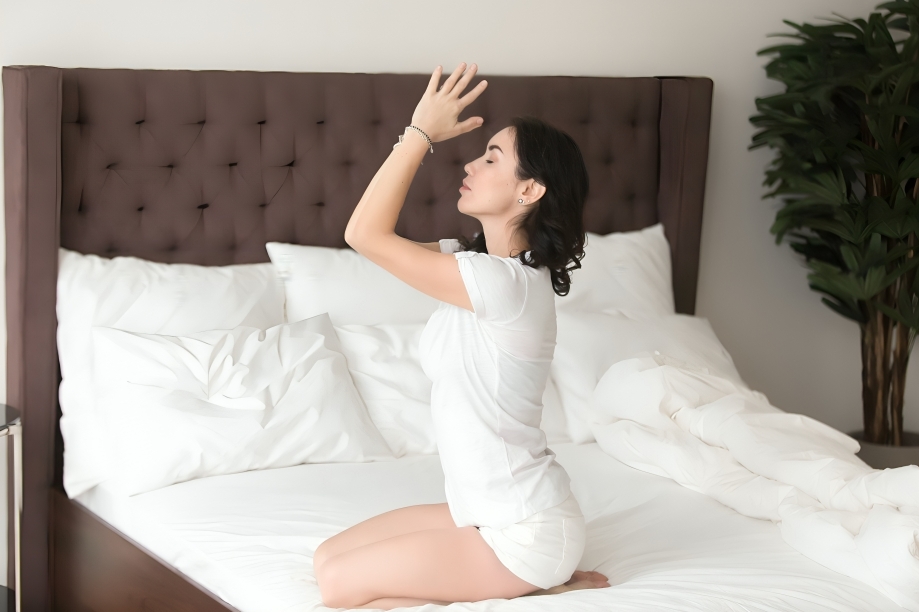Evening Habits of People Who Protect Their Energy & Mind – Have you ever noticed how the way we end our day often mirrors what we value most? For instance, scrolling endlessly through social media might signal a subconscious need for connection—or distraction.
On the other hand, lighting a candle and reading a book could reflect an intentional effort to carve out quiet moments in a chaotic world. It’s fascinating how small evening choices can reveal so much about who we are—and who we want to be.
For those who prioritize their energy and mental well-being, nighttime isn’t just downtime; it’s prime time for setting themselves up for success tomorrow (and feeling good today).
These individuals understand that restorative evenings aren’t indulgences—they’re investments. Here are seven habits they swear by, along with insights into why these practices work wonders.
Table of Contents
1. Unplugging from Screens Early
We’ve all been there: lying in bed, phone glowing like a tiny campfire, telling ourselves “just one more episode” or “one last email.” But people who prioritize their well-being know better. They set boundaries around screen time, aiming to unplug at least an hour before bed.
Why does this matter? Blue light disrupts melatonin production, making it harder to fall asleep. More importantly, constant stimulation keeps your brain buzzing when it should be winding down.
I used to think I needed my nightly binge-watch to decompress, but once I swapped Netflix for journaling, I realized how much calmer I felt. It’s not about deprivation—it’s about creating space for deeper relaxation.
Also Read: 6 Things Truly Happy People Never Chase, Says Psychology
2. Creating a Gratitude Practice
Before drifting off, many high-energy individuals take a moment to reflect on what went well during the day. This could mean jotting down three things they’re grateful for or simply pausing to mentally acknowledge them.
Gratitude isn’t just trendy; it rewires your brain to focus on positivity. Research shows that practicing gratitude reduces stress and improves sleep quality.
Personally, I started keeping a gratitude journal after a particularly rough week, and while it felt cheesy at first, it became a lifeline—a reminder that even tough days have silver linings.
3. Setting Intentions for Tomorrow
Instead of letting tomorrow sneak up on them, these folks spend a few minutes planning ahead. Whether it’s laying out workout clothes, prepping lunch, or writing a quick to-do list, they create a sense of control over the chaos.
This habit taps into something powerful: anticipation. When you visualize success—even something as simple as picturing yourself crushing a morning run—you build confidence and reduce anxiety.
Plus, knowing exactly where to start the next day makes mornings less overwhelming. Think of it as giving your future self a gift.
4. Engaging in Gentle Movement

Evening yoga, stretching, or a leisurely walk around the block is non-negotiable for many wellness enthusiasts. Physical activity doesn’t stop being important just because the sun sets.
Gentle movement helps release tension stored in the body throughout the day. It also signals to your brain that it’s time to transition from “doing” mode to “being” mode.
Also Read: 7 Valuable Life Lessons Younger Generations Can Learn from Boomers
I’ll never forget the first time I tried a five-minute bedtime stretch routine—it was transformative. Suddenly, my racing thoughts slowed, and my body felt lighter, almost as if I’d hit a reset button.
5. Cultivating a Sleep Sanctuary
People who thrive understand that environment matters. Their bedrooms aren’t multipurpose spaces cluttered with work papers or gym gear—they’re sanctuaries designed for rest. Think cozy blankets, dim lighting, and perhaps a diffuser wafting lavender into the air.
Your surroundings influence your mindset. A tidy, calming bedroom primes your brain for sleep, while a chaotic one can leave you feeling restless.
One friend of mine calls her bedroom her “cocoon,” and hearing her describe it made me realize how much emotional weight we place on physical spaces. If your bedroom feels inviting, you’ll naturally look forward to retreating there.
6. Practicing Mindful Breathing
Deep breathing exercises are a staple for those committed to mental clarity. Whether it’s box breathing (inhale for four counts, hold for four, exhale for four, repeat) or simply focusing on slow, steady breaths, this practice calms the nervous system.
Breathwork is more than just a trend—it’s science-backed magic. By slowing your breathing, you activate the parasympathetic nervous system, which promotes relaxation.
During stressful periods, I’ve found myself turning to apps like Calm or Insight Timer for guided sessions. There’s something profoundly grounding about tuning into your breath when everything else feels out of control.
7. Reflecting Without Judgment
Finally, many people use their evenings to check in with themselves—not to critique, but to understand. Journaling, meditating, or simply sitting quietly allows them to process emotions without rushing to fix anything.
Reflection fosters self-awareness, which is key to personal growth. When you take stock of your day without judgment, you give yourself permission to learn and evolve.
Cultural icons like Maya Angelou remind us that “Do the best you can until you know better. Then when you know better, do better.” Evening reflection creates space to know better.
Also Read: 7 Possessive Pups That Want You All to Themselves
The Bigger Picture: Small Choices, Big Impact
At its core, prioritizing energy and mental well-being is about recognizing your own worth. It’s saying, “I deserve to feel rested, centered, and ready for whatever comes next.” These habits may seem small, but together, they form a foundation for holistic health—mind, body, and spirit.
In a world obsessed with productivity, choosing to invest in rest can feel countercultural. Yet, it’s anything but lazy.
It’s courageous. It’s mindful. And ultimately, it’s empowering. So tonight, as you wind down, ask yourself: What kind of ending will honor the day you’ve had—and prepare you for the one ahead?
Because here’s the truth: The way you treat your evenings says everything about how you treat yourself. And isn’t that worth every ounce of effort?




